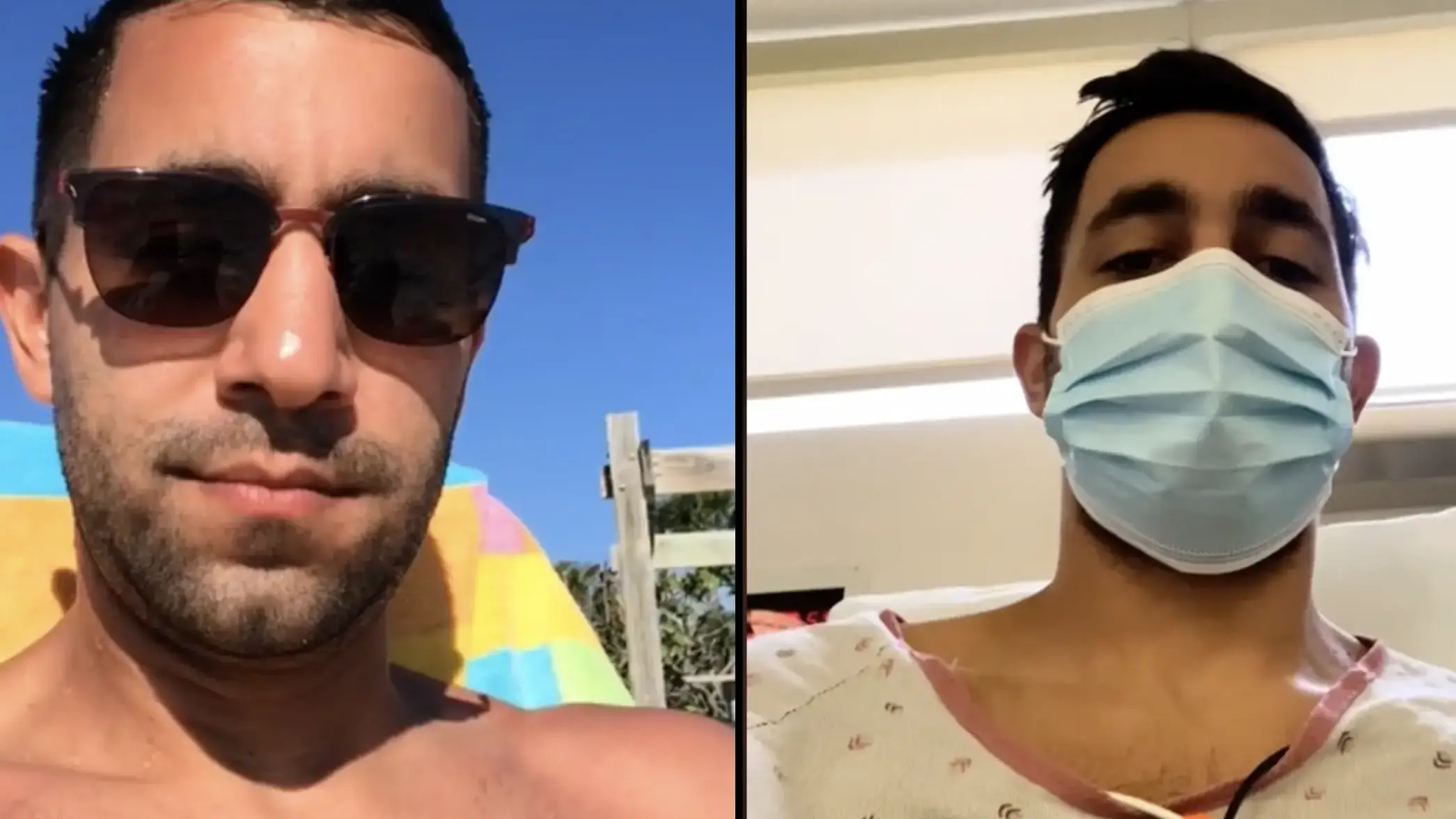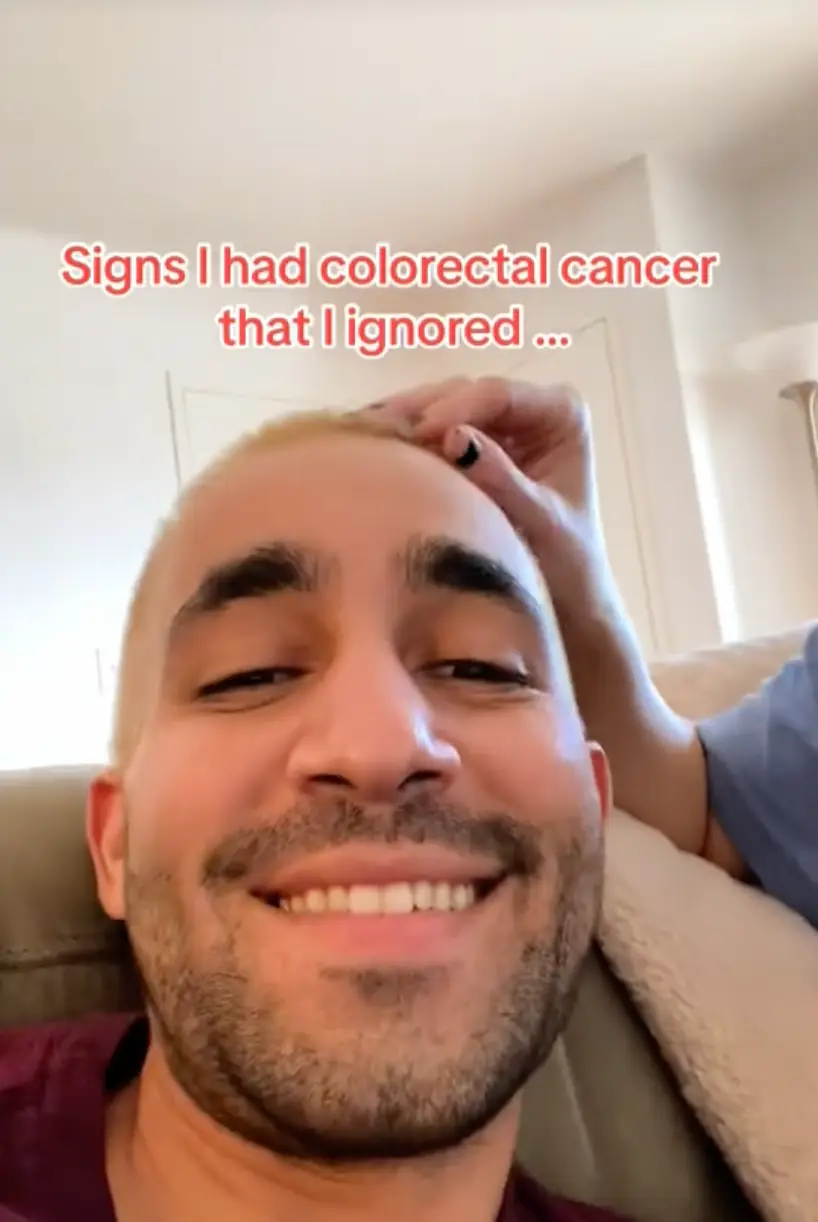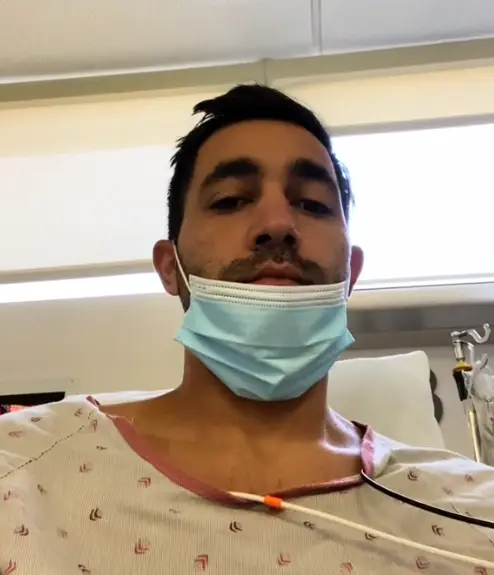
A man diagnosed with stage four colon cancer has opened up about the two key symptoms that he overlooked.
Joe Faratzis was 28 when he was diagnosed with colorectal cancer. Six years later, he's still living with the condition and has been sharing his life on TikTok.
According to the Centre for Disease Control and Prevention, 141,902 colorectal cancers were diagnosed in 2021 in the US. In that same year, 52,967 people died from the disease.
Faratzis recently opened up about the beginnings of his condition in an article for Self.
Advert

He recalled: "This all started in 2019. I started experiencing a faint abdominal pain whenever I bent over—for example, to tie my shoe.
"It was a dull, mild ache in the bottom right portion of my abdomen that popped up periodically, maybe once or twice a week, and I didn’t think much of it. It’s not like I was persistently in pain, or experiencing the ache every day. It was easy to ignore and forget about."
After making an appointment with his doctor, Faratzis was put forward for a CT scan. However, deeming it too expensive and unnecessary, he opted not go ahead with it.
This would prove to be a costly mistake.
Six months down the road, he noticed that there'd been bright red spots of blood on his toilet paper. But since it didn't happen every day, he wrote it off as a fissure or hemorrhoids.

He wrote: "As a 28-year-old man, I thought I was invincible, so I didn’t do anything about it. Plus I didn’t want to just run to the doctor to get a digital rectal exam.
"That whole situation, where the physician inserts a gloved finger in and around your rectum, seemed uncomfortable and embarrassing.
"Otherwise, I felt normal, but looking back, blood in my stool was a major red flag. That, combined with the sporadic abdominal pain, were major indicators that something was wrong."
He only started taking his symptoms seriously when he passed gas and saw blood - About half a cup's worth, to be exact.
At first, doctors didn't seem too concerned, particularly when blood tests came back normally.

However, once a colonoscopy was conducted, the problem was clear.
A big tumour was found and determined to be cancerous.
Recalling the devastating diagnosis, he wrote: "The imaging tests showed that the cancer was localized to my colon and hadn’t spread to other parts of my body. I had stage II colorectal cancer and would have to do chemotherapy, radiation, and get surgery to eliminate all of the cancer from my colon."
Treatment was tough but seemed to be making a difference.
However, he was dealt a devastating blow when he was told the cancer had spread to his lungs and liver.
He said: "I get my chest, abdomen, and pelvis scanned every three months. It’s a never-ending cycle of getting tested.
"I’ve had clear scans for the past year—it’s the longest stretch I’ve gone with no lesions, which is awesome. I feel good, I’m hopeful, and I live my life as if there isn’t an issue.
"I sometimes kick myself thinking back to that first doctor’s appointment, and what I would have, could have, should have done. At this point, it’s a mental game. I try not to worry that tomorrow will be my last day."
He urged readers to 'listen to your body', saying: "Be your own health care advocate. No one esle is going to hold your hand and do it for you."
If you’ve been affected by any of these issues and want to speak to someone in confidence, contact Macmillan’s Cancer Support Line on 0808 808 00 00, 8am–8pm seven days a week.
Topics: Cancer, Health, TikTok, Bowel cancer
